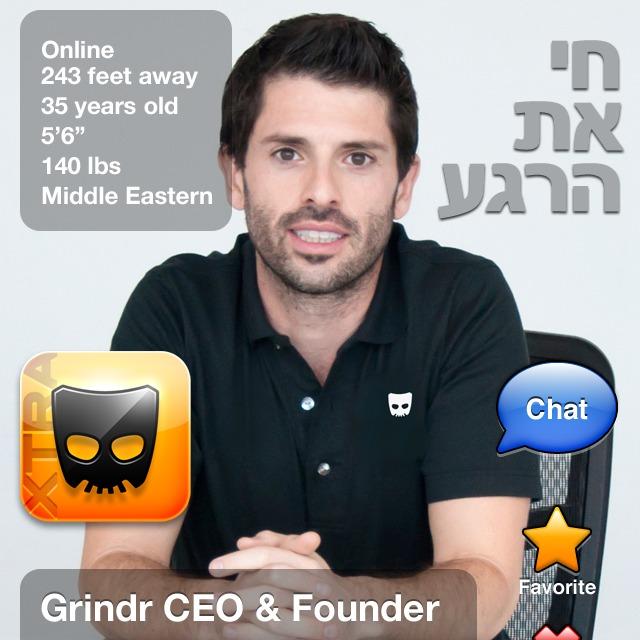BROOKE GLADSTONE: It’s notable that Grindr, a free app, is financially sustainable, with 76% of its revenue coming from subscribers to the app’s premium version. But Grindr’s founder, Joel Simkhai, says it was never about the money.
JOEL SIMKHAI: I've been realizing that I was gay since I was 16 or 17, and ever since then I've always wondered who else is gay. You know, it’s not always easy to figure that out. You know, we can go to gay bars and those types of places, but most of us don’t live in a gay bar.
BROOKE GLADSTONE: The name you chose for the app sounds like a gay bar. [LAUGHS]
JOEL SIMKHAI: It sounds like a gay bar? Maybe. I – I’ve never felt 100% comfortable in a gay bar, so for me Grindr’s all about finding someone who’s nearby and then meeting them. Don’t spend time on the app and chat with someone. See what the chemistry’s like.
BROOKE GLADSTONE: Grindr has six million users in 192 countries?
JOEL SIMKHAI: We’ve got users in Africa, we’ve got users in the Middle East, Saudi Arabia, Iran, Iraq, North Korea.
BROOKE GLADSTONE: Some criticize Grindr for promoting a heartlessly pragmatic culture, where men openly express disinterest in men of a particular race, age or body type.
JOEL SIMKHAI: You know, I think there is nothing wrong in knowing what you like and looking for that. You know, a lot of time in our lives is wasted in situations we don't want to be in. They shouldn’t be racist, they shouldn’t be hateful, and we police for that.
BROOKE GLADSTONE: I get the not wasting time part, but “no fatties, no Asians,” it can be very unwelcoming.
JOEL SIMKHAI: I do recognize that it’s sometimes unwelcoming, but if you're not feeling welcome by one profile, there’s an easy solution. It’s called the Block button. And if someone is saying something that you don’t like, block them.
BROOKE GLADSTONE: In the US gay and bisexual men in 2010 accounted for 63% of all new HIV infections, even though that only represents about 2% of the population. So to what extent do you feel a responsibility for unsafe sex practices that may happen as a result of people meeting on Grindr?
JOEL SIMKHAI: I think I have a responsibility for a lot of different things in the gay community, so when you log into the app, you'll see messaging regarding testing. We also have a page on our website where we inform users about STD prevention.
BROOKE GLADSTONE: Have you ever asked your users, polled your users, as to whether they practice safe sex?
JOEL SIMKHAI: Not to my knowledge. There's certainly more that I think we can do but, at the end of the day, this is the responsibility of our users. We’re not there at the moment that they’re having sex.
BROOKE GLADSTONE: Did Grindr turn out exactly the way that you envisioned it would?
JOEL SIMKHAI: I’ve never imagined that I'm responsible for millions and millions of men around the world, places I've never been, languages I don't speak. I’ve enabled them to the other gay men, and that to me is a blessing.
BROOKE GLADSTONE: Joel, thank you very much.
JOEL SIMKHAI: Thank you so much.
BROOKE GLADSTONE: Joel Simkhai is the founder and CEO of Grindr.
